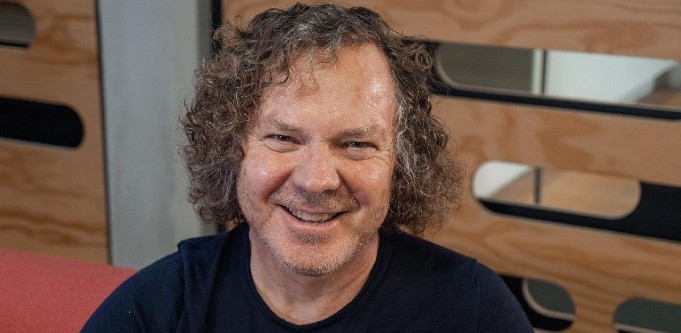
Soul Machines co-founder Greg Cross. Source: supplied.
New Zealand AI startup Soul Machines has secured a partnership with the World Health Organisation, using its AI-enabled digital assistant to help quash misinformation around COVID-19, and also to help smokers kick the habit during the pandemic.
Soul Machines typically provides its digital customers service assistants, or ‘digital superstars’ for corporations, allowing them to provide a video chat customer support service.
The assistants are animated autonomously, and designed to be more human-like than your average chatbot, and easier to interact with, making it easier for customers to relate to the character and trust with the business.
Now, in conjunction with Amazon Web Services and Google Cloud, the startup has built Florence, a digital health worker charged with challenging misinformation around COVID-19, specifically with regards to the risk for smokers.
On the one hand, Florence will help dispel myths and misconceptions around the pandemic, and best hygiene practice more generally, Soul Machines founder Greg Cross tells SmartCompany.
“There’s no shortage of that on social media these days,” he says.
But she will also serve as a tool to raise awareness of the heightened risk for smokers who contract the virus, and to offer them the information and support to quit. This case was specifically what the WHO opted to focus on, Cross says.
“It’s really important at a time like this,” he explains.
“The data clearly shows COVID-19 and smoking — it’s no good place to be when it comes to protecting your health in the new world.”

Florence in action. Source: WHO.
Humbling and exciting
The genesis of the project came at the beginning of March, as New Zealand and Australia started to feel the effects of the COVID-19 pandemic, Cross says. Like many businesses, he and his team were asking themselves what they could do to help.
“We started building a knowledge base of conversational content about COVID-19 for our clients,” Cross recalls.
They created a “digital Kiwi” named Bella, to offer guidance and share resources about the pandemic, and shared that resource with a range of government and health organisations and NGOs around the world.
It was this that captured the imagination of the WHO, he says.
Securing this partnership is a significant win for the startup, Cross says.
“The World Health Organisation, right here and now is certainly one of the most important organisations in the world,” he says.
But, this means more to Cross that getting a big-name client on board.
“What’s quite humbling and incredibly exciting at the same time is the opportunity to show what technology like this can do in the delivery of health services,” he explains.
“My co-founder and I have long held the view that education and healthcare would be some of the most exciting use cases for our technology,” he adds.
Securing a high-profile partnership at a time of global crisis like this one is a way to show how Soul Machines’ technology can make a positive impact on the world, he says.
“There are not many times in your career you get to say you’ve created a technology that could have an impact on 1 billion people,” he says.
“It’s the beginning of a very exciting period for us.”
A digital era
The last time we spoke to Cross was back in the relatively pandemic-free days of January, when Soul Machines raised $58 million in Series B funding.
Since then, the startup has had a bit of a different six months than planned. But, the team was lucky to go into the crisis “with a full tank of capital”, Cross says.
As a digital company with a distributed team, Soul Machines was able to continue operating.
And, the move to digital solutions for customer care and sharing information is yet another trend being accelerated by COVID-19, he says.
“The COVID-19 crisis has accelerated the need for every company, every industry, every government to look into digital platforms, and at the way they deliver product and service knowledge to their customers in a world where face-to-face interaction can be riskier,” Cross explains.
Previously, corporations have talked about digital transformation. Now, we’re squarely in the digital era, he says.
“I don’t think you can plan that the world is going to go back to the way it was anytime soon,” he adds.
This entire WHO deal was put together and finalised over video calls, for example.
Mere months ago, “you wouldn’t have dreamed of putting a deal together like this without face to face interaction”, Cross says.
“It goes to show how far we’ve come, and how much we’ve already had to adapt to the new normal.”
NOW READ: COVID-19: The financial future is bright for the brave and the bold


COMMENTS
SmartCompany is committed to hosting lively discussions. Help us keep the conversation useful, interesting and welcoming. We aim to publish comments quickly in the interest of promoting robust conversation, but we’re a small team and we deploy filters to protect against legal risk. Occasionally your comment may be held up while it is being reviewed, but we’re working as fast as we can to keep the conversation rolling.
The SmartCompany comment section is members-only content. Please subscribe to leave a comment.
The SmartCompany comment section is members-only content. Please login to leave a comment.